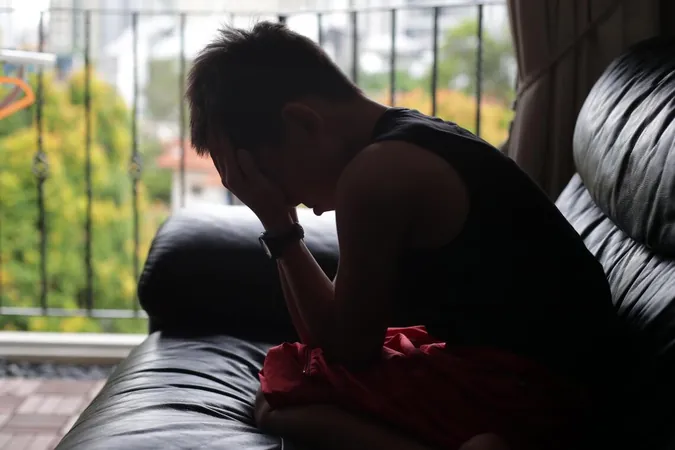
Shocking Study Reveals Key Warning Signs of Suicide: Are You Paying Attention?
2025-09-18
Author: Arjun
Alarming Insights from Singapore's Mental Health Experts
A ground-breaking study from Singapore's Institute of Mental Health (IMH) has uncovered critical warning signs that many individuals exhibit in the week leading up to a tragic suicide. Disturbing mood changes, heightened anger, and recklessness are just a few indicators that friends and family members could detect.
Social Media: A Revealing Window into Distress
Those who ultimately took their own lives displayed unusual behaviors on social media prior to their deaths, highlighting a need for vigilance in digital interactions. Many also had a documented history of previous suicide attempts, raising urgent questions about early intervention.
Breaking the Silence: The Importance of Mental Health Literacy
IMH emphasized the necessity for improved mental health education in Singapore, urging family and friends to recognize these warning signs more effectively. The study, titled "Seeking Answers: A Psychological Autopsy Of Exploring And Analysing Risk Factors," employed a novel approach to delve into the psychological narratives of individuals who died by suicide.
Understanding the Distress: Insights from Close Connections
Through interviews with loved ones of 73 individuals who died by suicide from 2021 to 2024, researchers gleaned valuable insights. This examination revealed that many relatives struggled to differentiate between typical stress and serious mental health issues like depression, leading to delays in seeking necessary help.
What Are the Typical Warning Signs?
The findings pointed out consistent warning signals aligned with the American Association of Suicidology's criteria, such as hopelessness, withdrawal from social interactions, and significant mood fluctuations. Shockingly, nearly 40% of the studied cases had previously attempted suicide, with many making these attempts just a year before their tragic end.
Creating Connections: The Power of Honest Conversations
Professor Chong Siow Ann from IMH highlights the subtle nature of these warning signs, often mistaken for mere stress. He insists that recognizing these changes can be life-saving if those around the individuals are equipped with the right knowledge.
There exists a common myth: that discussing suicide might plant dangerous ideas in a vulnerable person's mind. On the contrary, ignoring such conversations can lead to increased isolation and despair.
Take Action: Don't Ignore the Signs!
Research indicates that when loved ones feel free to discuss their struggles without judgment, the chances of seeking timely help drastically increase. If you notice someone displaying symptoms of hopelessness or withdrawal, reach out. Being supportive can create a vital connection and possibly save a life.
Further Statistics: A Troubling Pattern
The study also painted a chilling picture of the broader issues linked to suicide. More than half of the individuals studied reported functional limitations in daily activities, while a significant number faced insomnia shortly before their deaths. Furthermore, over 70% of these cases had been diagnosed with mental health disorders, with major depressive disorder being the most prevalent.
A Call to Action for Society as a Whole
Associate Professor Mythily Subramaniam, the principal investigator of the study, stresses that tackling the suicide crisis involves all of us. Open dialogues about mental health are essential, especially as young people face increasing pressures from various sources. It’s time to dismantle the stigma and act as supportive allies in our communities.
By fostering environments where people can safely discuss their issues, we stand a better chance of facilitating timely interventions that can prevent unnecessary tragedies.



 Brasil (PT)
Brasil (PT)
 Canada (EN)
Canada (EN)
 Chile (ES)
Chile (ES)
 Česko (CS)
Česko (CS)
 대한민국 (KO)
대한민국 (KO)
 España (ES)
España (ES)
 France (FR)
France (FR)
 Hong Kong (EN)
Hong Kong (EN)
 Italia (IT)
Italia (IT)
 日本 (JA)
日本 (JA)
 Magyarország (HU)
Magyarország (HU)
 Norge (NO)
Norge (NO)
 Polska (PL)
Polska (PL)
 Schweiz (DE)
Schweiz (DE)
 Singapore (EN)
Singapore (EN)
 Sverige (SV)
Sverige (SV)
 Suomi (FI)
Suomi (FI)
 Türkiye (TR)
Türkiye (TR)
 الإمارات العربية المتحدة (AR)
الإمارات العربية المتحدة (AR)